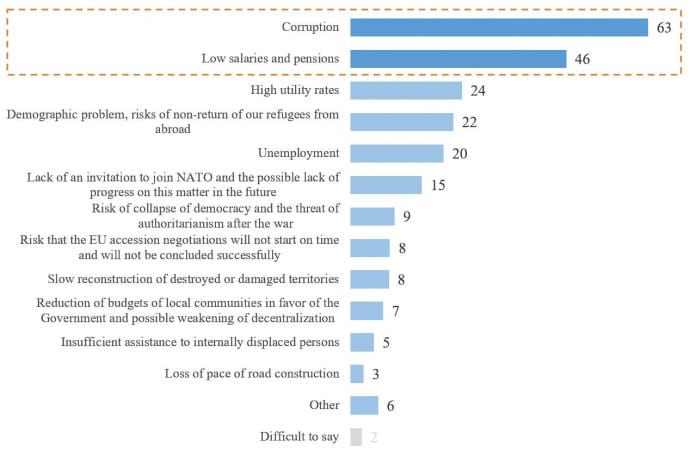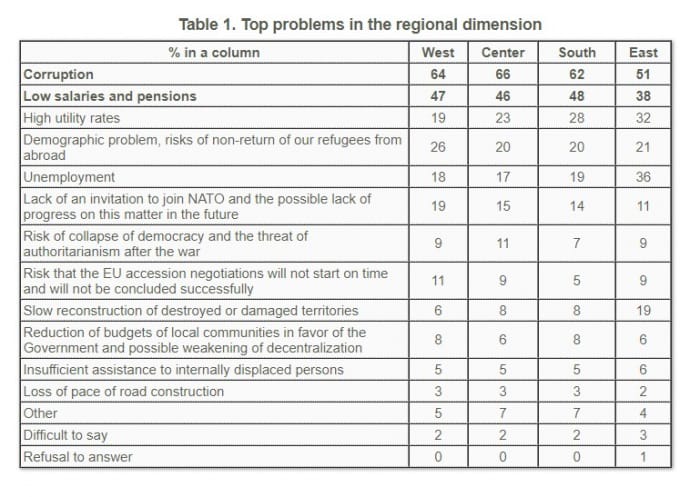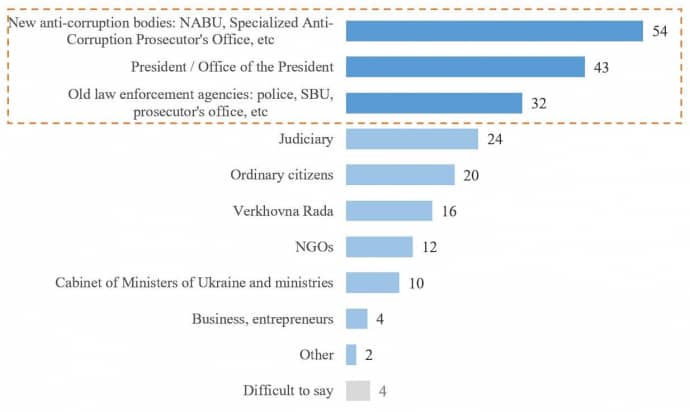Ukrainians consider corruption biggest problem besides war − Kyiv International Institute of Sociology

The biggest problem for Ukraine and Ukrainians is the war, followed by corruption and low salaries and pensions, sociologists have found.
Source: results of a sociological research survey by the Kyiv International Institute of Sociology (KIIS), conducted during 30 September - 13 October
Quote KIIS: "The war is certainly the biggest problem for Ukraine and Ukrainians. However, if you ask what problems outside the war most concern Ukrainians, 63% of respondents mention corruption. The second top problem is low salaries and pensions. Other important issues are high utility prices, demographic risks and unemployment."
Details: It is reported that in all regions, most respondents talk about corruption and low salaries/pensions.
54% of respondents are convinced that the new anti-corruption bodies created after 2014 should, first of all, fight corruption. At the same time, many respondents also talk about the President/Office of the President (43%) and relatively "old" law enforcement agencies, such as the police, the Security Service of Ukraine, and the prosecutor's office.
Residents of all regions expect the new anti-corruption infrastructure to be proactive in its work.
The study was conducted from 30 September to 13 October. Two thousand seven respondents living in all oblasts of Ukraine (except the Autonomous Republic of Crimea) were interviewed using telephone interviews based on a random sample of mobile numbers. The survey was conducted with adult (aged 18 years and older) citizens of Ukraine who, at the time of the survey, lived on the territory of Ukraine (within the limits controlled by the Ukrainian authorities until 24 February 2022). Residents of the temporarily occupied territories could not be included in the sample, and the survey was not conducted with citizens abroad.
Formally, under normal circumstances, the statistical error of such a sample (with a probability of 0.95 and taking into account the design effect of 1.1) did not exceed 2.4% for indicators close to 50%, 2.1% for indicators close to 25%, 1.5% for indicators close to 10%, and 1.1% for indicators close to 5%.
In times of war, a certain systematic deviation is added in addition to the specified formal error. However, sociologists are convinced that the results obtained retain high representativeness and allow for a fairly reliable analysis of public sentiment.
Support UP or become our patron!








